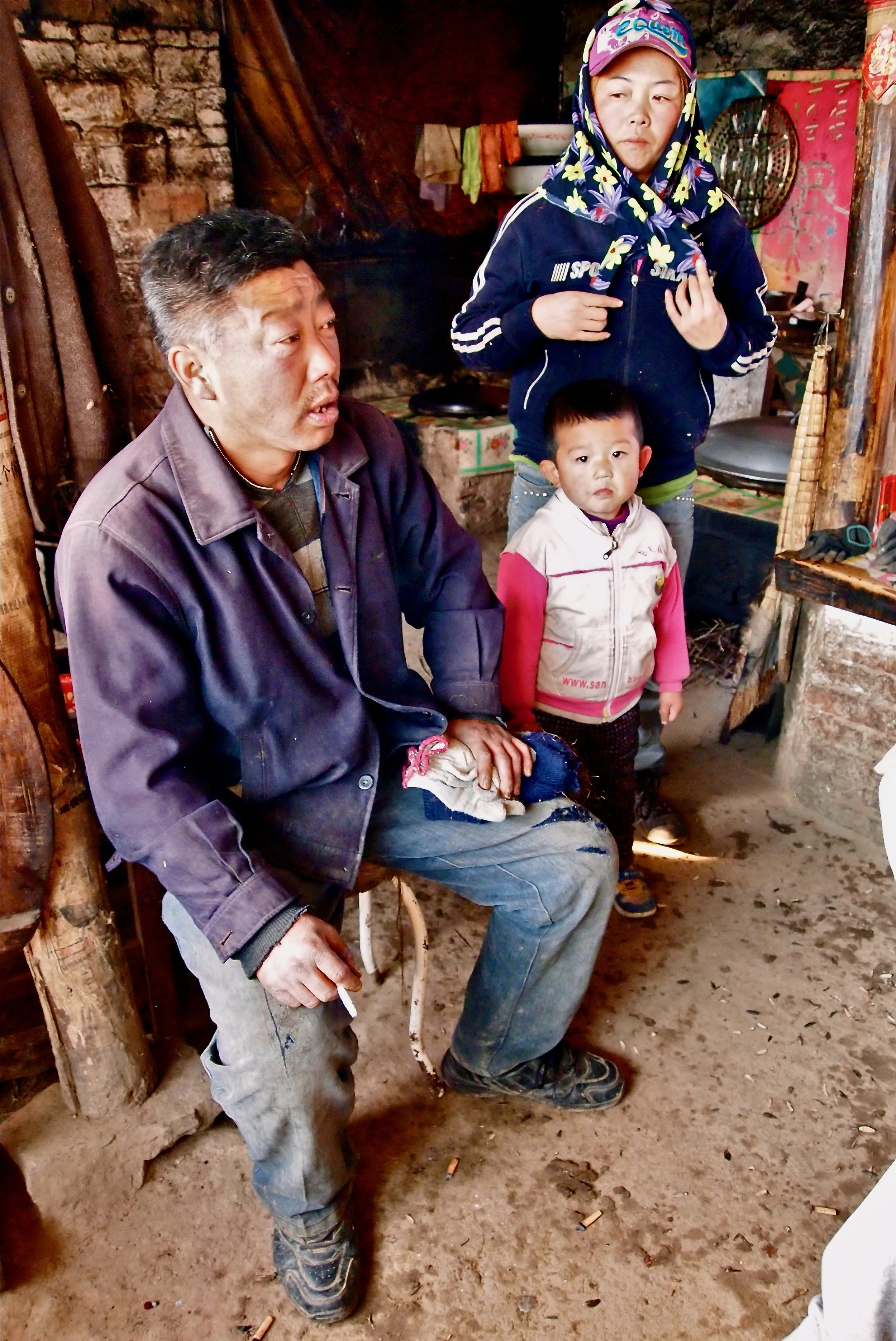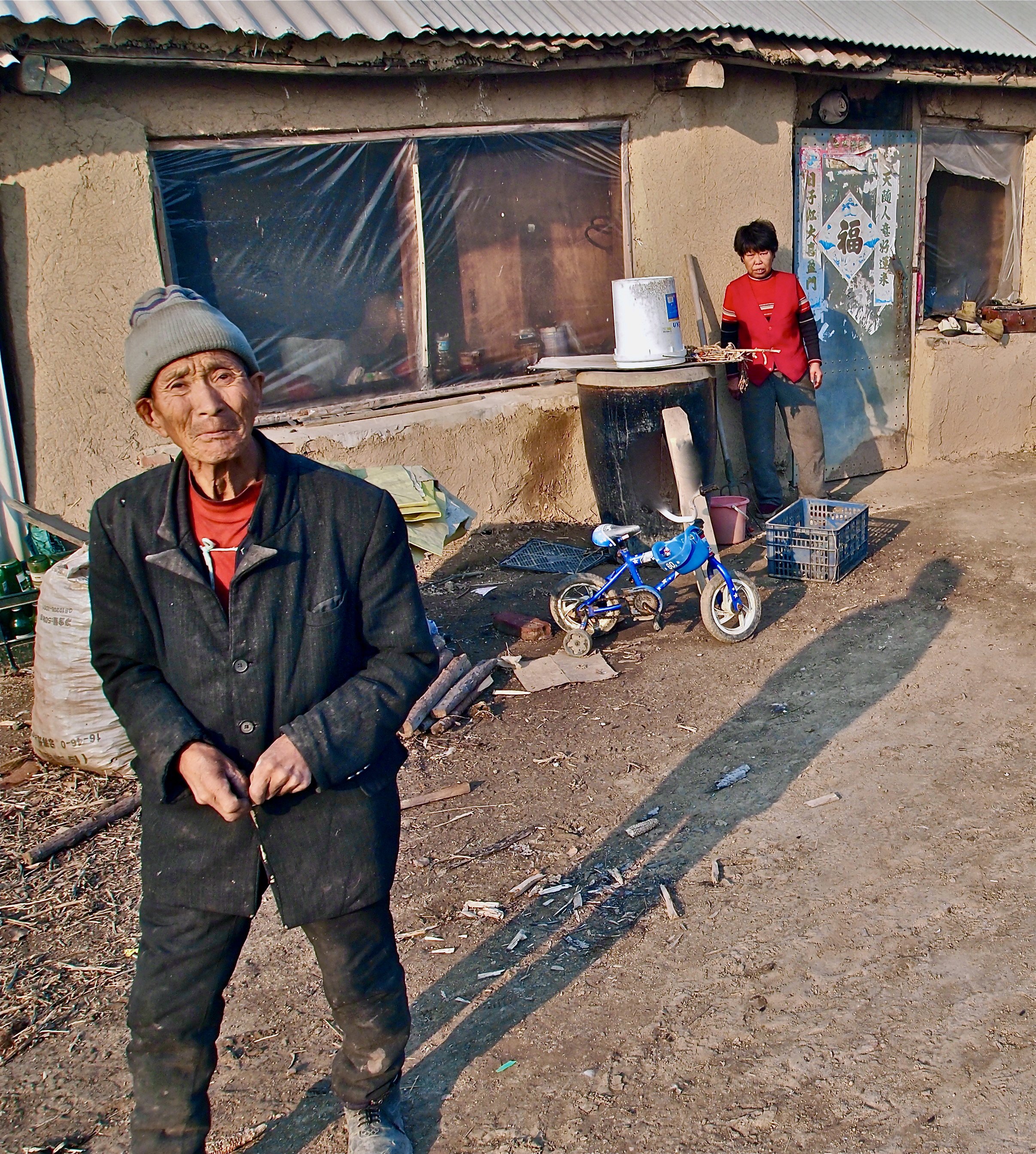
THIS TOWN DOES NOT EXIST
In China’s far north, a small town has been cut from the grid. The government wants the villagers to move. They’re staying put.
Liang Xi Quan (54) lives in a town that doesn’t exist. Come to think of it, Liang himself doesn’t even exist. Yet here he is: sitting on a low wooden stool in front of his house, smoking. But the Chinese government insists: Liang is not here. And neither are the other four hundred villagers in Qinglongshan.
“To some people, this would be paradise,” says Liang. “A place from where the government withdrew.”
Qinglongshan is a hamlet in China’s icy northeast, far away from everything. The town used to feature on maps. There was even a road leading to it. That all changed in 1998, when the government told the residents to pack up and leave. Their town was to be replaced by a reservoir for drinking water.
“They offered us houses in this other village, but nothing else,” Liang remembers. “Here we have farmland we depend on to earn a living. Over there, we would only have a house. No land. So how would we survive? All we know is how to farm. That’s why we decided to stay.”
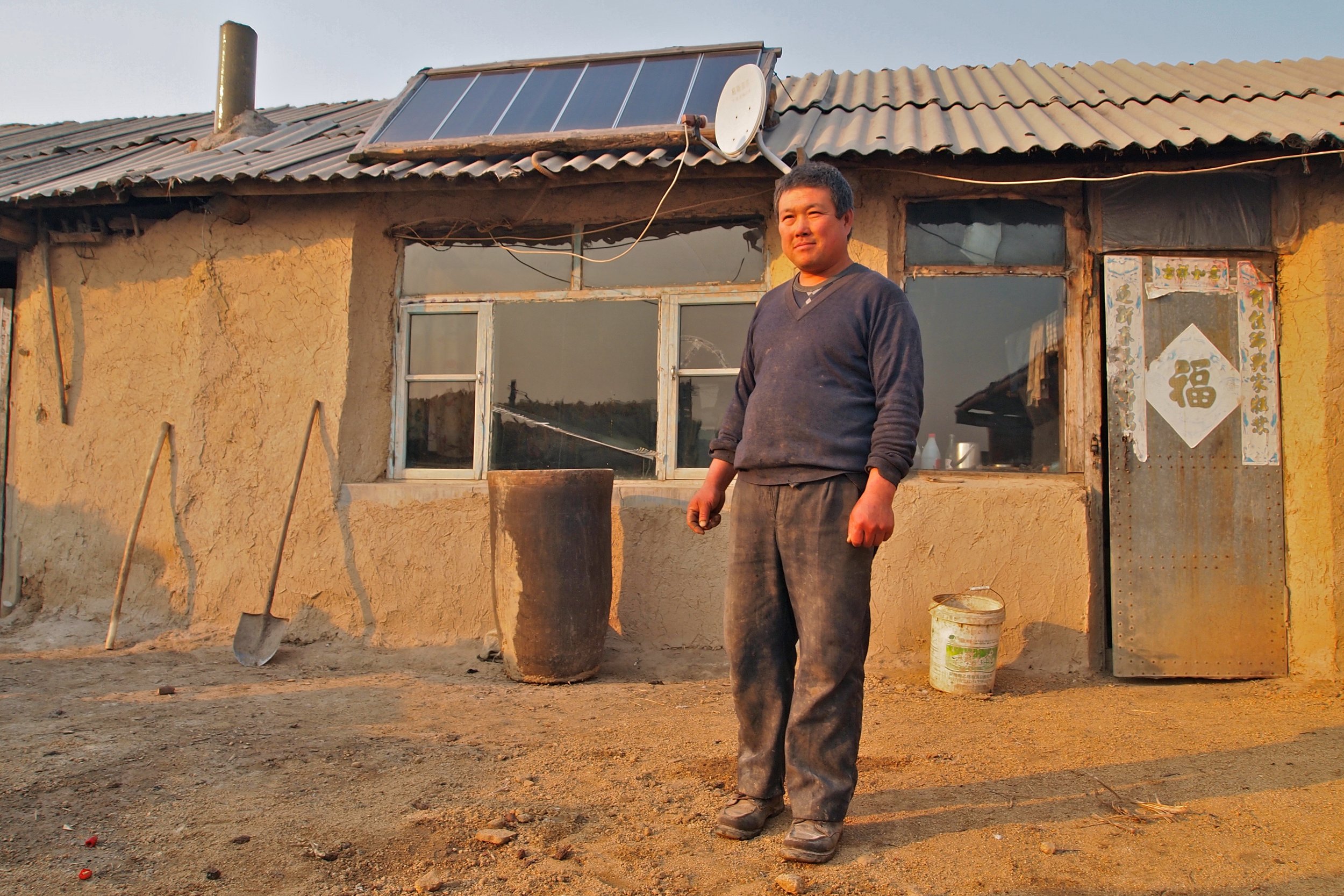
Conflicts between farmers and local governments are a daily occurrence all over China. It usually ends with the authorities sending in bulldozers to raze down the farmers’ houses, after which the redevelopment plan will go on as intended.
In Qinglongshan, things did not follow that script. Instead of bulldozing the town, the government decided it would simply start denying it ever existed.
Liang: “They cut all power lines, disconnected our phone lines and stopped maintaining the one road between us and anywhere else.”
The town has literally been wiped off any map made in China. If you want to get to Qinglongshan, best you can do is ask around in Pingshan, which is the nearest village still recognized by the government. It’s pretty much the only place in the country where they still know about the existence of Qinglongshan.
A Pingshan farmer agrees to take us on horse cart to Qinglongshan. What once was a road, is now just a muddy trail which sucks in their feet with every step the two horses take. It takes over an hour before the wooden electricity poles come into view. The wires have disappeared.
Next to each clay house in the town stands a pole with the steel frame of a bicycle wheel strung up in top. The villagers found out this makes for an acceptable replacement for the proper tv-antennas they once had.
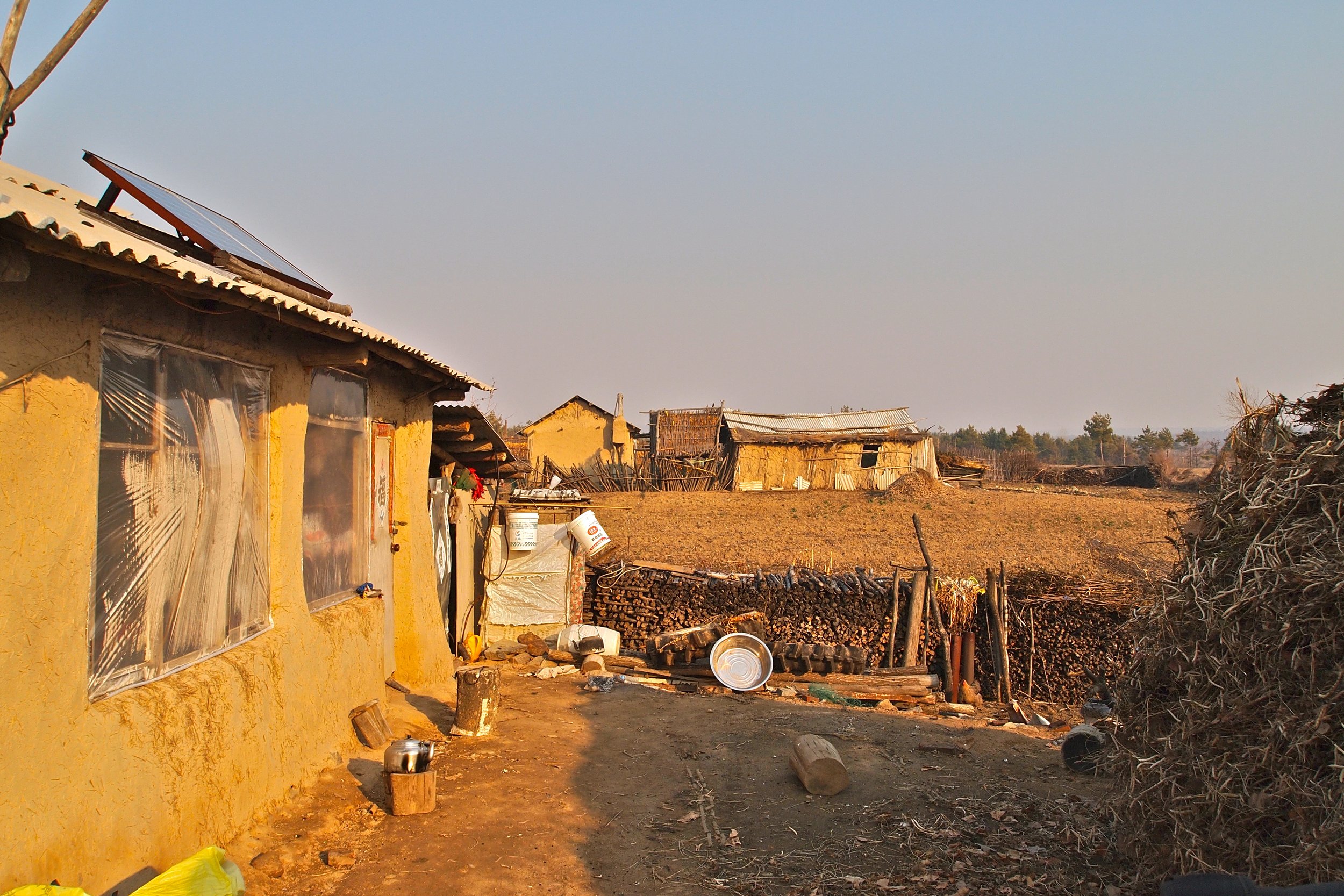
Besides utilities, the government also canceled the ‘hukou’ of all the residents of Qinglongshan. A hukou is every Chinese citizen’s most important identity document. It entitles to free education, health care and other public services in the place of birth.
Liang still has his Qinglongshan hukou, a green booklet counting eighteen pages. It has become worthless.
“Without hukou, our children cannot attend school,” he says. “The town down the road quietly allows our youngest to attend, but when they reach high school age they have to go.”
Liang himself has a heart condition. Yet he doesn’t receive any medical care without a hukou.
A few muddy paths away, Jia Zhong You (45) is standing inside a hut, next to two man-sized kettles. He runs the town’s alcohol distillery.
“No government also means: no taxes on alcohol!” he smiles. “Personally, I much prefer this life without hukou and without government interference. I’m not planning on ever leaving this town, so why would I need any documentation?”
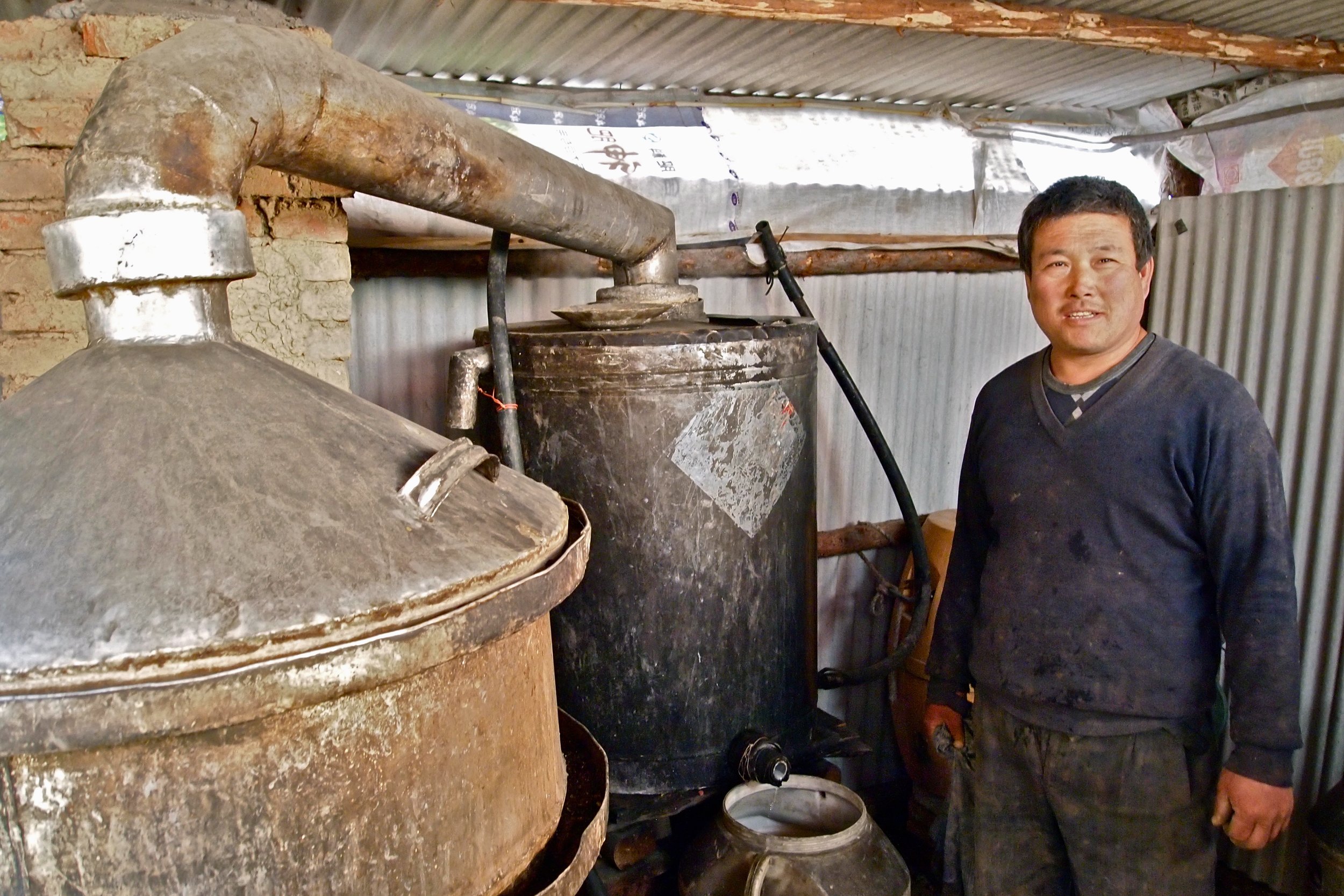
When the government disappeared, the villagers held a town hall. There, they decided each family can farm on 45.000 square meters of land. That’s over seven times the acreage of what a farmer has on average in China. Jia: “We still run things like that. There is no town’s leader. Everything is agreed upon on in a town hall.”
Like the recent decision to buy solar panels for each house. Jia: “They give enough electricity to power a tv and a lamp. Or a fridge. Just not everything at once.”
The government still offers the people of Qinglongshan an out. It has posted two civil servants in Pingshan, the town down the muddy track. “They’re the ones we could go see to apply for a new hukou,” says Liang. “It’s something they’re trying to get us out of here after all. Because if we apply for the hukou, we will get all the rights to services that come with it. But we’ll first have to abandon our homes and farmland here.”
And that’s not happening, Liang assures anyone who asks. “Things are pretty alright here, believe it or not. We make a proper living from the land, selling the products like corn to the people in Pingshan. Actually, we’re far too busy farming. Even if we wanted, we don’t have time to concern us with things like a government.”
